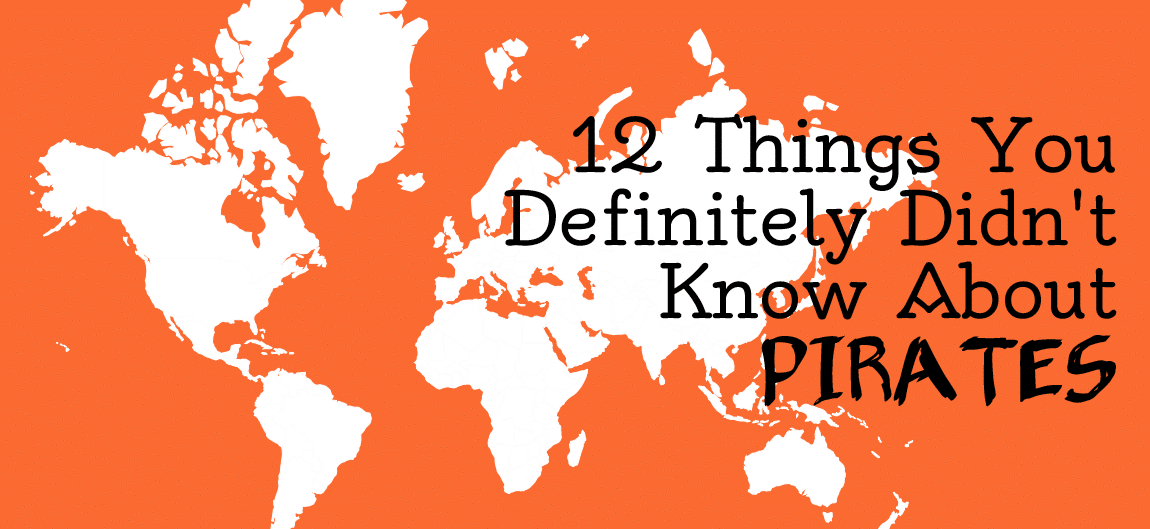Want Some Cool Facts About Modern Day Marine Piracy?
When you think of pirates, what comes to mind?
Swash-buckling rogues from eras long past with long swords, cannons and great big ships? Skulls and crossbones? Johnny Depp’s (admittedly brilliant) rendition of Captain Jack Sparrow?
How about 2016? Somalia? How about an average of 30 pirate attacks a month? Billions of pounds lost annually to marine piracy?
Although we are not aware of it, modern-day marine piracy is still an incredibly prevalent issue. Worldwide, it’s a massive threat to the shipping industry. So we decided to share 12 interesting facts about pirates in the 21st century with you!
1. They use modern weapons – and they have pretty heavy artillery too
Modern pirates often own heavy-duty firearms such as automatic weapons, rocket-propelled grenades and mortars. A big step up from cannons and swords! Due to international laws, ships cannot carry weapons on board so they cannot defend themselves against this kind of attack. In this context it may sound strange that they aren’t allowed to defend themselves – however, these are all merchant ships travelling around the world. Naturally, you wouldn’t want a foreign country coming into your waters heavily armed. Hence, the rule.
2. A lot of pirates make their money through ransom charges, so they do not often kill
They also prefer to keep their hostages in good health as this means that governments are reluctant to hit back at them. Although this is obviously better than the alternative, this makes pirates a lot more difficult to retaliate against.
3. They earn an average of $120,000 per crew they kidnap
Piracy is profitable!
4. In Somalia, pirates are actually an integral part of the community
The community supports them! This is because often the district gets a cut of whatever profits pirates make, which they use for education and healthcare.
6. Estimated annual loss due to piracy is $13 to $16 billion
Piracy is by no means a small business; it costs the shipping industry a large sum worldwide each year!
7. Most carriers don’t report piracy incidents
Unfortunately, when a carrier reports a piracy incident their insurance rates skyrocket and they have to pay for the following investigation, which can cost $1,000 per day. This ultimately means that many carriers don’t report piracy incidents. In turn, many pirates aren’t persecuted, a lot of attacks aren’t recorded and piracy data is not entirely accurate.
8. The rate of pirate attacks was higher last year than assaults in South Africa, which has the highest level of crime in the world.
9. Apparently Britney Spears songs have been used as a deterrent against pirates by warships in the region
What more is there really to say? Other than:
10. Many Somalian pirates have a Robin Hood complex – at least, they started off that way
The source of modern piracy in Somalia was the collapse of their government. It comes as no surprise to anyone that the rest of the world seized the chance to take advantage of Somalia’s new unprotected and unenforced state. Neighbouring countries began illegally fishing and dumping waste in their waters and angry Somalian fishermen began to board these vessels and demand the fees that should have been collected by the government.
11. To this point, Somali pirates are pulling in big money
Now, however, piracy is definitely all about the money. In 2008, it’s estimated that pirated raked in $150 million; small time pirates earn in the low five figures, but bosses pull in $2 million a year. Bearing in mind that you can buy dinner for under $1 in Somalia, this is a lot of money. However, most pirates are earning this money and leaving Somalia, many preferring Kenya.
12. Sailors can’t use traditional weaponry, but they’ve found other ways to fight back
As we’ve already covered, commercial ships aren’t allowed to carry weapons on board – however, they aren’t letting that stop them! Many shipowners pay security companies to accompany them on their journeys along pirate-heavy routes. One of our favourite stories, however, is the initiative that Chinese sailors on the Zhenhua 4 took.
When pirates clambered up the side of the Zhenhua 4, the crew climbed onto a higher deck and pulled up the ladder. Then they turned on high-pressure fire hoses and knocked the pirates off their feet. But the crew didn’t stop there. After this, they then started hurling down Molotov cocktails, made from beer bottles filled with gasoline.
Not only was this a great use of initiative; this was a great way to avoid using brutal force but resist the pirate’s attacks.
Not Pirates – Shippo
On a more serious note, most importers probably do not need to be worried about piracy. Piracy is generally concentrated in a few key areas and a majority of our shipping lanes don’t travel through the most prominent of these. If you are worried, feel free to contact us and we’d be happy to answer any questions you may have.
Recent posts

Riding Into The Year Of The Horse: Key Dates For Importers
Are You Planning On Importing In January 2026? We know Christmas isn’t over yet but Chinese New Year is fast approaching with little time to

Solving Lactose Intolerance, One Shipment at a Time!
When Ariane moved to London from Germany, she thought finding something as simple as Lactase supplements would be simple. Feeling frustrated, she realised she wouldn’t

Importing Success Stories – How Does it Work?
We want to understand the passion behind your business, whether that be for doggy bags or unique furniture! That’s why we’re offering £100 off your



